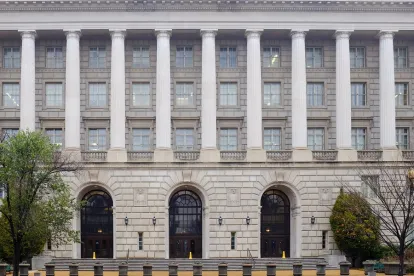On April 4, 2017, QinetiQ U.S. Holdings, Inc. petitioned the US Supreme Court to review the US Court of Appeals for the Fourth Circuit’s decision that the Administrative Procedure Act of 1946 (APA) does not apply to the Internal Revenue Service (IRS) Notices of Deficiency. We previously wrote about the case (QinetiQ U.S. Holdings, Inc. v. Commissioner, No. 15-2192) here, here, here and here. To refresh, the taxpayer had argued in the US Tax Court that the Notice of Deficiency issued by the IRS, which contained a one-sentence reason for the deficiency determination, violated the APA because it was “arbitrary, capricious, an abuse of discretion, or otherwise not in accordance with law.” The APA provides a general rule that a reviewing court that is subject to the APA must hold unlawful and set aside an agency action unwarranted by the facts to the extent the facts are subject to trial de novo by the reviewing court. The Tax Court disagreed, emphasizing that it was well settled that the court is not subject to the APA and holding that the Notice of Deficiency adequately notified the taxpayer that a deficiency had been determined under relevant case law. The taxpayer appealed to the 4th Circuit, which ultimately affirmed the Tax Court’s decision.
In its petition for a writ of certiorari, the taxpayer argues that the 4th Circuit’s decision contravened Mayo Foundation v. United States, 562 U.S. 44 (2011), where the Supreme Court stated that it is “not inclined to carve out an approach to administrative review good for tax law only.” The taxpayer also argued that the 4th Circuit’s decision creates a division in the lower courts over whether generally applicable APA principles apply to review of the IRS’s decision-making processes as well. Specifically, the taxpayer argued that the 4th Circuit decision conflicts with Cohen v. United States, a 2011 D.C. Circuit case that rejected “a judicially created exemption for the IRS from suit under the APA,” and Fisher v. Commissioner, a 1995 Tenth Circuit case stating that “[t]he IRS cannot make taxpayers haul it into Tax Court to . . . discover what the rationale for its decision is.”
In addition to arguing that there is a split among the circuits, the taxpayer’s petition argues that the issue is exceptionally important and warrants the highest level of review. The taxpayer claims that the IRS will be incentivized to “say next to nothing in a Notice of Deficiency, thereby preserving maximum flexibility to assert whatever arguments it wants right up until trial while keeping the burden of proof on the taxpayer.” The taxpayer concludes that the IRS holds enough advantages over taxpayers already, and there is no basis for allowing the agency to circumvent the APA.
Practice Point: As mentioned in our most recent post about this case, unlike recent APA arguments in other tax contexts, arguments relating to insufficient reasoning in a Notice of Deficiency have not been well-received. Yet, as the earlier 4th Circuit decision acknowledged, the Tax Code’s requirements may still help safeguard taxpayers who receive insufficiently explained IRS determinations. Taxpayers should review any IRS determinations carefully to determine whether a procedural challenge may be beneficial, including but not limited to, shifting the burden of proof to the IRS. If the Supreme Court grants the taxpayer’s petition and decides to hear the case, the Court’s opinion could have major ramifications on both the IRS and taxpayers regardless of the outcome.




 />i
/>i
